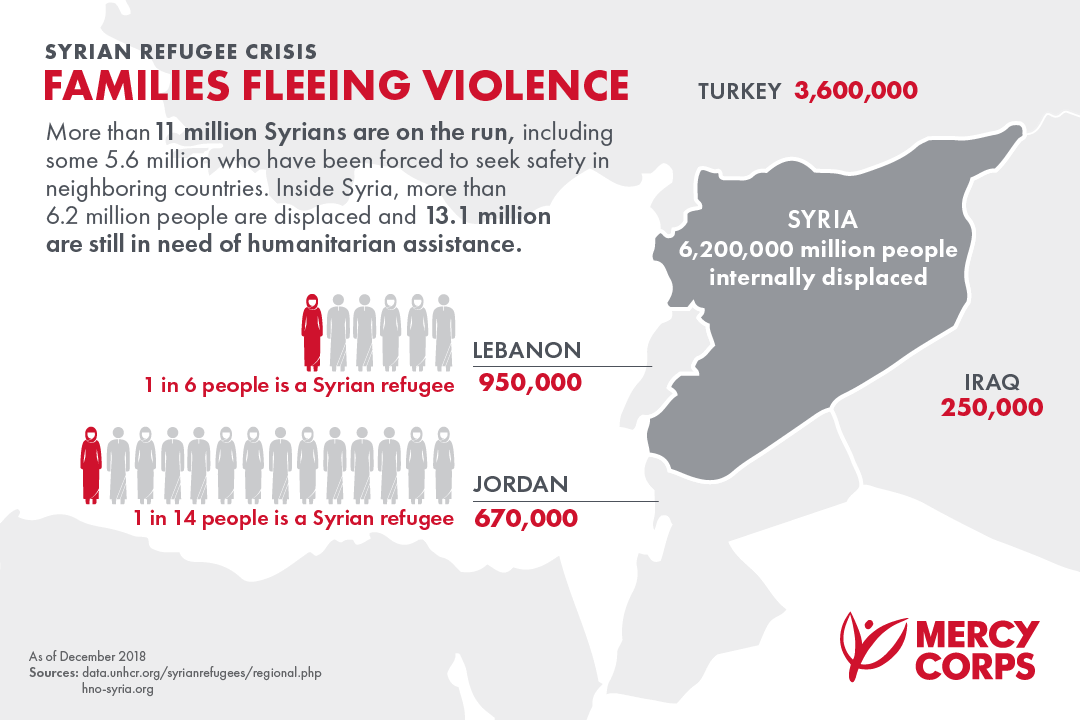9 years in, 9 things to know about the Syrian civil war

War in Syria has devastated communities.
Image: REUTERS/Omar Sanadiki
Stay up to date:
Inequality
Syria's war entered its ninth year on Friday, with fresh violence forcing thousands to flee from separate assaults on the last bastions of Islamic State and rebel-held territories.
Here are nine facts about the war, which grew out of popular protests against President Bashar al-Assad and has laid waste to swathes of Syria, creating the world's largest refugee crisis:
1. More than 5.6 million Syrian refugees have fled to Jordan, Lebanon, Iraq and Egypt and 6.6 million have been displaced within its borders.
2. About 11.7 million people need emergency aid in Syria, many of them children.
3. The war has killed an estimated half a million people.
4. With 1,106 children killed by fighting in 2018, it was the deadliest year for Syrian children according to verified deaths, although the true figure is likely to be much higher.
5. Up to 250,000 Syrians may go home this year as Assad controls most of Syria and the front lines appear stable for now between government territory and two big enclaves in the north and east outside Damascus's control.
6. About 2 million children in Syria are out of school.
7. As Islamic State has lost ground to U.S.-backed forces in eastern Syria, militants and their families have streamed out to Al-Hol camp, which holds some 67,000 people in "dire conditions", 90 percent of them women and children.
8. More than 3,500 children from more than 30 countries, whose families have real or suspected links to the Islamic State, are living in harsh condition camps in northeast Syria.
9. Of these, about 2,000 children are younger than five.
Have you read?
Don't miss any update on this topic
Create a free account and access your personalized content collection with our latest publications and analyses.
License and Republishing
World Economic Forum articles may be republished in accordance with the Creative Commons Attribution-NonCommercial-NoDerivatives 4.0 International Public License, and in accordance with our Terms of Use.
The views expressed in this article are those of the author alone and not the World Economic Forum.
Forum Stories newsletter
Bringing you weekly curated insights and analysis on the global issues that matter.
More on Equity, Diversity and InclusionSee all
Julia Hakspiel
June 17, 2025
Kim Piaget and Yanjun Guo
June 12, 2025
Gayle Markovitz, Kate Whiting and Pooja Chhabria
June 12, 2025





